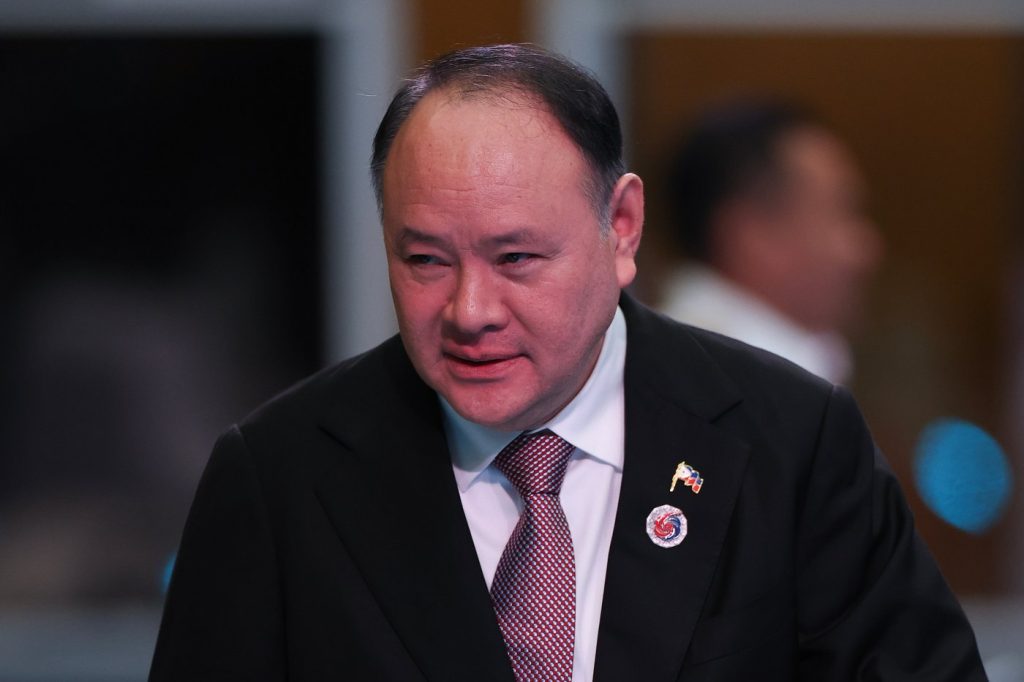MANILA, Philippines (AP) — Canada and the Philippines, both prominent critics of China's increasingly assertive actions in the contested South China Sea, are set to sign a significant defense agreement on Sunday. This pact aims to enhance joint readiness drills and expand security alliances to deter any acts of aggression, as stated by Philippine officials.
Several Western nations, including Canada, have been bolstering their military presence in the Indo-Pacific region to promote the rule of law and enhance trade and investment. This strategic move aligns with President Ferdinand Marcos Jr.'s efforts to strengthen defense ties with other countries, enabling the Philippines to better defend itself against a militarily superior China in the contentious waters. The signing of this agreement is seen as a crucial step in fortifying these ties.
China has not yet responded to the agreement but has previously labeled the Philippines as a "troublemaker" and a "saboteur of regional stability" due to its joint military exercises and patrols with the United States and other nations in the South China Sea. Despite a 2016 arbitration ruling that invalidated China's expansive claims over the waterway—decreed under a 1982 U.N. convention—Beijing continues to assert its dominance. The ruling, which has been dismissed by China, allowed for significant developments regarding territorial claims in the area.
The Chinese government has faced backlash due to its aggressive tactics, including the use of powerful water cannons and dangerous blocking maneuvers against Philippine coast guard and fishing vessels, leading to injuries and collisions. This contentious situation also involves Vietnam, Malaysia, Brunei, and Taiwan, all of which have been entangled in ongoing territorial disputes.
Philippine Defense Secretary Gilberto Teodoro Jr. is expected to sign the Status of Visiting Forces Agreement with his Canadian counterpart, David McGuinty, in Manila. Teodoro emphasized that this agreement will be instrumental in fostering a rules-based international order and countering any attempts to redefine international norms for the benefit of powerful nations.
The Status of Visiting Forces Agreement will provide a legal framework for foreign troops carrying weapons and facilitate joint large-scale combat exercises in either nation. The Philippines had previously signed its first such defense agreement with the United States in 1998, which was followed by a similar pact with Australia in 2007. The agreement with Canada marks the third under President Marcos’s administration, following similar treaties with Japan and New Zealand. Negotiations with France and Singapore for similar agreements are ongoing, with potential discussions also taking place with Britain, Germany, and India.
During the annual meeting of defense ministers from the Association of Southeast Asian Nations (ASEAN) along with Asian and Western counterparts in Malaysia, Teodoro condemned China's recent announcement regarding the establishment of a "nature reserve" in the Scarborough Shoal. This area is rich in fishing resources and claimed by both the Philippines and China. Teodoro stated, "This, to us, is a veiled attempt to wield military might and the threat for use of force, undermining the rights of smaller countries and their citizens who rely on the bounty of these waters."
In response to China's controversial plans, Canada criticized the initiative when announced in September, opposing any attempts to leverage environmental protections as a means to exert control over Scarborough. Canada has previously expressed concern over China's aggressive actions, particularly when Chinese ships attempted to forcibly remove Philippine vessels from the shoal, which resulted in injuries to a Filipino fisheries officer during the encounter.
Canadian Ambassador to Manila, David Hartman, has made it clear that Canada remains committed to confronting China's provocative actions in the region, asserting, "Will continue to do so." Furthermore, last year, Canada formalized a defense cooperation agreement with the Philippines. An additional agreement signed in Ottawa in 2023 granted the Philippines access to Canada’s "Dark Vessel Detection System," an advanced satellite technology designed to track illegal vessels, regardless of whether they deactivate their location-transmitting devices. The Philippine coast guard has utilized this Canadian technology to monitor Chinese coast guard ships and fishing vessels operating in the South China Sea.











